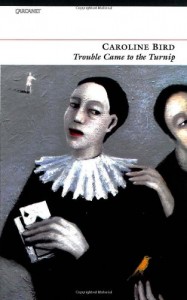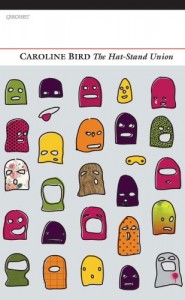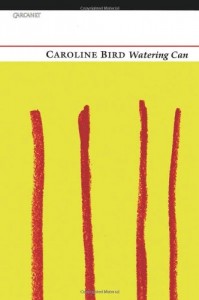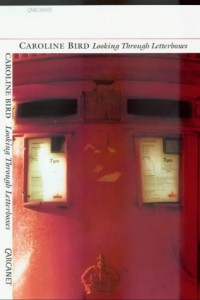Caroline has had seven books published by Carcanet Press: Rookie: Selected Poems (2022,) The Air Year (2020,) In These Days of Prohibition (2017), The Hat Stand Union (2013), Watering Can (2009), Trouble Came to the Turnip (2006) and Looking Through Letterboxes (2002). Carcanet Press is a leading publisher of contemporary poetry based in the United Kingdom and founded in 1969 by Michael Schmidt. Carcanet publishes the work of many leading poets including John Ashbery, Kei Miller, Sinead Morrissey and Edwin Morgan. Caroline’s books can all be purchased directly from Carcanet here.
Collections
-

Following Looking Through Letterboxes, her first collection (2002), Caroline Bird was acclaimed as a vivid and precocious new talent. Trouble Came to the Turnip confirms her originality as she strikes out again in new directions, taking nothing for granted. Her poems are ferociously vital, fantastical, sometimes violent, almost always savagely humorous and self-mocking. Caroline Bird's world is inhabited by failed and (less often) successful relationships, by the dizzying crisis of early adulthood, by leprechauns and spells and Miss Pringle's seven lovely daughters waiting to spring out of a cardboard cake. And the turnip.
'Winsome, intelligent and startlingly mature...wild and fantastic, suggesting an original mind and a singular vision.' Poetry London






